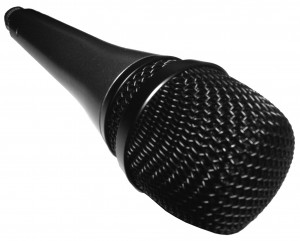I’ve seen several mentions this week, mostly over Twitter, of the vile hoax played by an individual posing as Jodi Reamer from Writers House. It sounded pretty crappy, but I didn’t go clicking on links to find out more about the story. I wasn’t positive what the angle was on this scam, but ripoffs and frauds abound, and I didn’t perceive any reason for me to be worried about it.
I’m a regular reader of Writer Beware! though, and last night I came across Victoria Strauss’s writeup of the whole ordeal here.
And I am just dumbstruck.
I’m not as good a writer as I like to think, because I’m at a loss for words. I mean, I have plenty of cliché words. Words like “cruel,” “disgusting,” “horrible,” and so forth. Words that tell how I feel but are inadequate to show it.
According the the screenshots and transcripts over at Writer Beware, the perpetrator claims to be a teenager. Some folks in the comments cast doubt on that, because the perpetrator shows sophisticated knowledge in several ways: using the name of a real agent at a phenomenal agency, dropping names of real genre editors at real houses, knowing about selling a book at auction, and so forth. On the other hand, this hoax reminds me of some of the more disgusting high school hoaxes I’ve heard of–the ones that tend to make national news when they end in tragedy.
Teen or not, there is no excuse for this action, but I’d like to hope the person who did it is still relatively early in the process of finding his or her moral center. Aaronni’s blog identifies her as a college senior, so it’s not too farfetched to suppose she knows some people in that age range and that one of them may be jealous and/or vengeful. I did things when I was much younger that horrify me now, and I’d like to hope that the perpetrator of this scam grows enough to one day look back and be horrified as well.
Because otherwise what we have here is a sociopath.
Even though Aaronni is an internet stranger to me, I found myself having an emotional reaction† as I read her story. Because I know, as many of you reading this do, how much of ourselves we aspiring writers invest in that dream. I know how many years I spent sending stories out into the world without anybody who wasn’t a friend or relative having a single nice thing to say about them. I know what it’s like to have enough rejections to wallpaper a room. I know what it’s like to finally start to see some trickle of a sign that you may have what it takes–some personal feedback, some agents who come close, some promising personal interactions, some contest wins. And yes, I know what it’s like to finally get The Call from an agent. To know that somebody who’s not invested in your self-esteem feels strongly enough about your work to be willing to invest her professional time and resources on it.
And when I imagine having thought I’d reached that point and having it turn out to be fake . . .
Like I said, I’m not a good enough writer to convey that. Maybe I need to challenge myself to write a character that evil, because it never would have occurred to me to create someone that wantonly cruel, that personally destructive.
I’ve got to hope this person didn’t know how very meaningful this button he or she pushed was. That when this person figures it out, he or she will want to crawl into a hole and bring the hole in after him- or herself, like in a Bugs Bunny cartoon.
There’s almost no chance the perpetrator of this hoax will ever read my blog post about it, and if you’re reading this you’ve probably heard about this from somewhere else, so I can’t claim to be warning anybody either. But this created such a strong emotional response in me that I had to write about it. That’s just what I do.
† That’s the manly way to admit I choked up, right?








 Subscribe via RSS
Subscribe via RSS